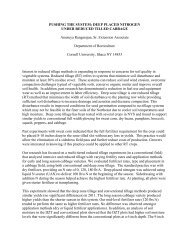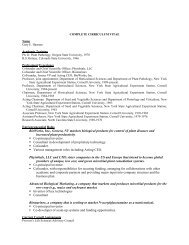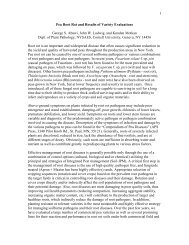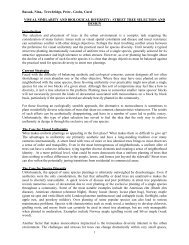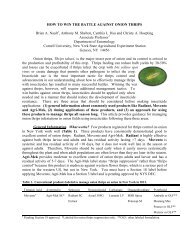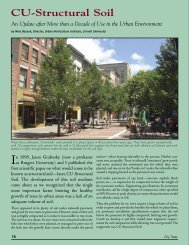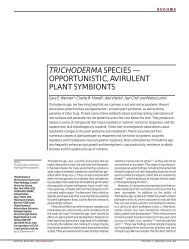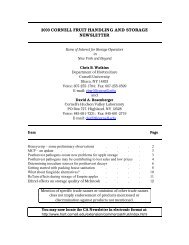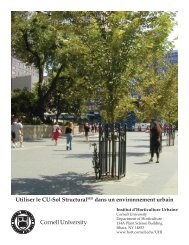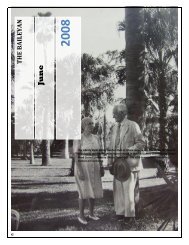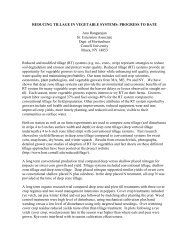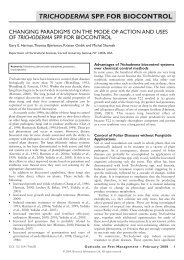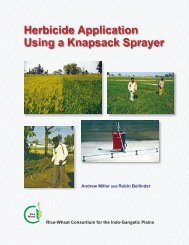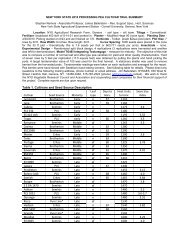Recommended Urban Trees: A Cornell Campus Walk - Horticulture ...
Recommended Urban Trees: A Cornell Campus Walk - Horticulture ...
Recommended Urban Trees: A Cornell Campus Walk - Horticulture ...
Create successful ePaper yourself
Turn your PDF publications into a flip-book with our unique Google optimized e-Paper software.
industry’s answer to white bark<br />
birches that inevitably succumb<br />
to bronze birch borer. Although<br />
not a long-lived street tree (in<br />
part because it suffers from iron<br />
deficiency at high pH), it is often<br />
worth using for the beauty and<br />
year-round interest it imparts.<br />
The exfoliating, salmon-pink<br />
bark is noteworthy.<br />
Go down the steps to your left<br />
and head downhill on Ho Plaza.<br />
The double row of trees in the<br />
plaza are London plane trees,<br />
Platanus x acerifolia<br />
‘Bloodgood,’ 29). London plane<br />
is often selected for city use<br />
because it is very fast-growing<br />
and durable. It is a cross between<br />
Oriental plane tree and American<br />
sycamore; its common name<br />
comes from its extensive use in<br />
London as a dependable urban<br />
tree. ‘Bloodgood’ is resistant to<br />
the fungal disease anthracnose,<br />
but overplanting has made it<br />
vulnerable to other pests. Leaf,<br />
bark, and fruit litter can also be<br />
an annoyance.<br />
The trees outside the stone plaza<br />
wall have a much more favorable<br />
soil environment. Growing in<br />
lawn instead of concrete are two<br />
17<br />
(29) Platanus x acerifolia 'Bloodgood,'<br />
London Plane Tree<br />
The pH Factor<br />
<strong>Urban</strong> trees are selected partly on the<br />
basis of their tolerance of high soil pH.<br />
Soil pH is a measure of how acidic or<br />
alkaline (sour or sweet) the soil is. Acid<br />
soil has a higher concentration of<br />
hydrogen ions (H + ), whereas alkaline<br />
soil has more hydroxide ions (OH _<br />
).<br />
Their relative concentration determines<br />
the nature of chemical reactions in the<br />
soil, especially whether nutrients can be<br />
made available to the roots. For that<br />
reason, when soil pH is out of the<br />
desirable range for a particular plant,<br />
nutrient uptake is limited and the plant<br />
exhibits symptoms of deficiency. Most<br />
plants prefer a soil pH of 6.0-7.5. To<br />
identify potential street trees that can<br />
handle the high pH of the concrete-laden<br />
environment, the UHI looks for trees<br />
that grow in limestone-based soils in<br />
their native habitat.



